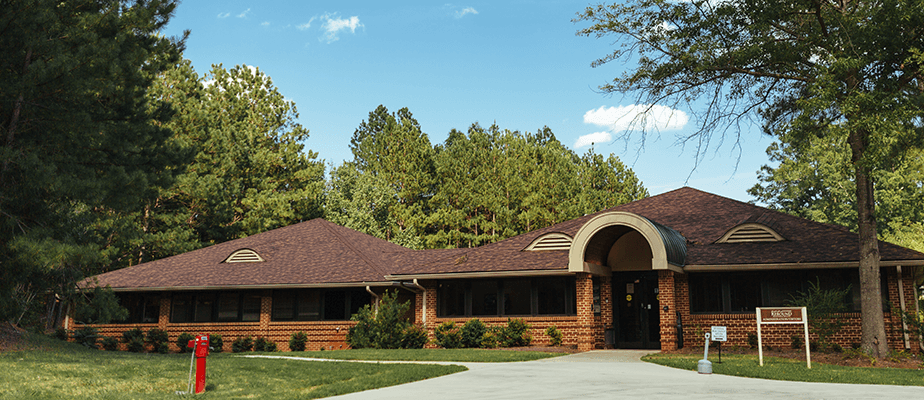Prescription drug addiction is defined as the use of prescription medication in a way not intended by the prescribing physician.
More About Prescription Drugs
Learn More About Prescription Drugs
This type of behavior can include taking another person’s prescription medication or crushing and injecting pills as a means to get high. Individuals who are addicted to prescription medications will continue to abuse these drugs even if they’re causing a number of negative consequences. The most common types of drugs abused include prescription painkillers, CNS depressants, and stimulants. Since these drugs are prescribed by a physician and regulated by the FDA, many people mistakenly assume that they are safe. This is not the case – prescription drugs act the same way as illegal drugs do and can lead to very serious consequences. With early identification of prescription drug abuse and early intervention, treatment professionals may be able to prevent this type of behavior from turning into an addiction.
Statistics
Statistics on Prescription Drug Addiction
In 2010, about 7 million people (or 2.7% of the United States population) were current users of psychotherapeutic drugs used for non-medical purposes.
What Causes Prescription Drug Use?
Learn About the Causes and Risk Factors for Prescription Drug Addiction
Most researchers believe that addiction is caused by a number of risk factors working together to create addiction to prescription drugs. The most commonly cited causes for prescription drug abuse include:
Genetic: People who have first-degree relatives, such as a parent or sibling, who struggle with addiction are at a greater risk for developing an addiction as opposed to people who do not have a similar history.
Physical: People who struggle with chronic health conditions, such as pain-related conditions, or mental health disorders, such as anxiety disorders, are at greater risk for developing addiction to prescription drugs. These individuals may begin using medications in order to help with the pain they are experiencing or to control symptoms of other disorders only to come to rely on them to get through the day.
Environmental: Environmental stressors can have a huge impact in the development of addiction. People who began to abuse drugs and alcohol early in their youth are at greater risk for developing an addiction later in life. Additionally, having a peer group or circle of friends who abuse drugs may influence someone to abuse prescription medication.
Risk Factors:
- Addiction to other substances
- Lower socioeconomic status
- Younger age – between the teen years and early 20s
- Presence of mental health disorders
- Easy access to prescription drugs
- Lack of knowledge about prescription drugs
Signs of Prescription Drug Addiction
Signs and Symptoms of Prescription Drug Addiction
The symptoms of prescription drug abuse will vary based upon the type of drug abused, individual genetic makeup, frequency of use, amount of drug used, and length of use. The most common symptoms of prescription drug abuse include:
Prescription Painkiller Abuse Symptoms:
- Mood swings
- Confusion
- Drowsiness
- Constipation
- Hypotension
- Depression
- Impaired coordination
Sedatives and Anti-Anxiety Agent Abuse:
- Poor judgment
- Nystagmus – involuntary, rapid movement of eyeball
- Dizziness
- Drowsiness
- Confusion
- Unsteady gait
Stimulant Abuse:
- Hypertension
- Cardiac arrhythmias
- Restlessness
- Weight loss
- Agitation
- Irritability
- Insomnia
- Impulsive behaviors
Other Symptoms:
- Drug-seeking behavior
- Continuing use against medical advice
- Taking higher doses than prescribed more often than intended
- Lying to others about drug use
- Stashing drug in various places around home, work, and car
- Withdrawing socially
- Inability to fulfill responsibilities at work, school, or home
- Withdrawing from once-enjoyed activities
- Seeking prescriptions from more than one doctor
- Appearing unusually high, intoxicated, or amped up
- Poor decision making
- Sudden changes in behavior
- May borrow or steal from others
- Frequent doctor visits
Effects of Prescription Drugs
The Effects of Prescription Drug Addiction
Prolonged abuse of prescription drugs can lead to a wide range of unpleasant complications that can destroy an individual’s life. The effects are most notable when people abuse several drugs at once. The most common long-term complications of prescription drug abuse include:
Prescription Painkiller Effects:
- Increased risk of aspiration and choking
- Hypotension
- Slowed respiration rate
- Respiratory depression
- Respiratory arrest
- Coma
Anxiolytic Effects:
- Loss of normal coping abilities
- Impaired memory
- Needing more medication to achieve the same effects
- Hypotension
Stimulant Effects:
- Hypertension
- Seizures
- Tremors
- Dangerous hyperthermia
- Cardiovascular complications
- Hallucinations
- Aggressiveness
- Paranoia
Other Effects of Prescription Drug Abuse:
- Poverty
- Worsening mental health
- Addiction
- Incarceration
- Decline in work performance or job loss
- Homelessness
- Organ system damage and failure
- Seizures
- Self-harming behaviors
- Coma
- Suicidal ideation
- Death
Withdrawal & Overdose
Learn What Happens During Prescription Withdrawal & Overdose
Overdose: When abusing prescription drugs, there is always the chance of an overdose. Many individuals who abuse these substances often use multiple drugs at once and may combine it with alcohol to increase the feelings of happiness and reduce unpleasant side effects. This can very easily lead to overdose. If you suspect someone you love is experiencing an overdose, call 911 immediately. Common symptoms of overdose on prescription medications include:
Prescription Painkiller Overdose Symptoms:
- Awake but unable to talk
- Vomiting
- Loss of consciousness
- Respiratory depression
- Respiratory collapse
- Limp body
- Pale, clammy skin
- Cyanosis
- Slow, erratic heart beat
- Choking sounds
- Coma
- Death
Anxiolytic Overdose Symptoms:
- Confusion
- Stupor
- Nystagmus
- Falling
- Seizures
- Coma
- Death
Stimulant Overdose Symptoms:
- Tachycardia
- Large pupils
- Seizures
- Muscle cramping
- Rapid respiration rate
- Chest pain
- Dizziness
- Coma
Withdrawal: When a person becomes physically dependent upon a prescription drug, they will experience a number of withdrawal symptoms when the drug is abruptly discontinued. The most common symptoms of withdrawal include:
Prescription Painkiller Withdrawal:
- Agitation
- Sweating
- Abdominal cramping and diarrhea
- Goosebumps
- Anxiety
- Muscle aches
- Insomnia
- Nausea and vomiting
Anxiolytic Withdrawal:
- Benzodiazepine withdrawal syndrome
- Confusion
- Status epilepticus
- Hallucinations
- Tachypnea
- Tachycardia
- Tremors
- Weakness
- Seizures
- Coma
- Death
Stimulant Withdrawal:
- Psychomotor agitation
- Increased appetite
- Vivid, unpleasant dreams
- Fatigue
- Insomnia or hypersomnia

















